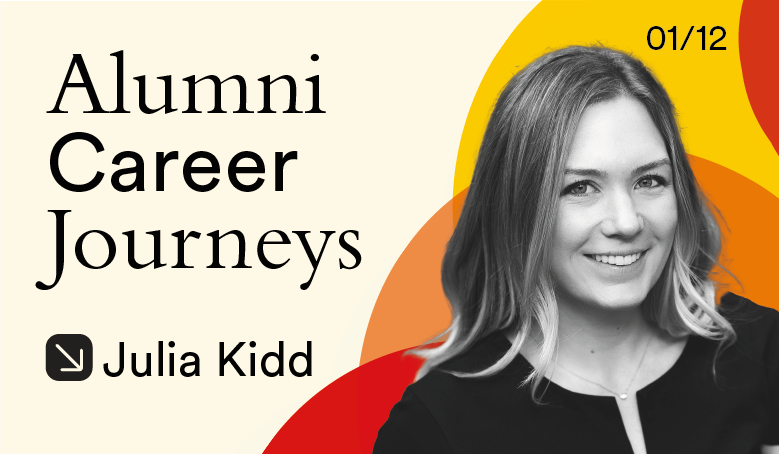This year sees the launch of Alumni 12/12, or 12 over 12—where each month we feature a Hult alum’s career journey from one to twelve years post-graduation. For our first edition, we went back one year to the Class of 2022 and spoke to Julia Kidd. A year after graduating from her Dual Degree, Julia reflects on her career journey so far and updates us on her plans for the future.
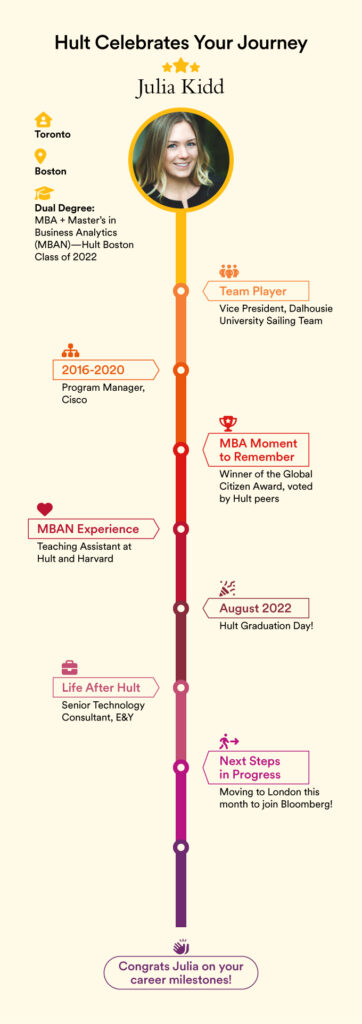

Hult: Hi Julia, great to speak to you. What was life like for you prior to Hult and what made you decide to go back to school?
Julia: I grew up in Toronto and completed my undergraduate degree at Dalhousie University in international relations with a minor in biology. My first job out of school was at Cisco Systems, working for their Corporate Social Responsibility team. The team created programs within the public sector and alongside non-profit clients that supported community building within healthcare and education. While there, I realized that I had a real passion for technology and wanted to lean into that. But I always wanted to get my MBA. I saw more broadly in the market that there was a major gap between business and technology. This was my chance to hone those skills and become the bridge between the two.
H: Why Hult specifically?
J: Hult really fit what I was looking for. Not only could I get my MBA, but I could also get a Master’s in Business Analytics. Merging both of those sides meant I could speak between business and technology. Hult was the perfect match for what I wanted and the time frame that I was looking for—I didn’t have to spend years at university getting my master’s.
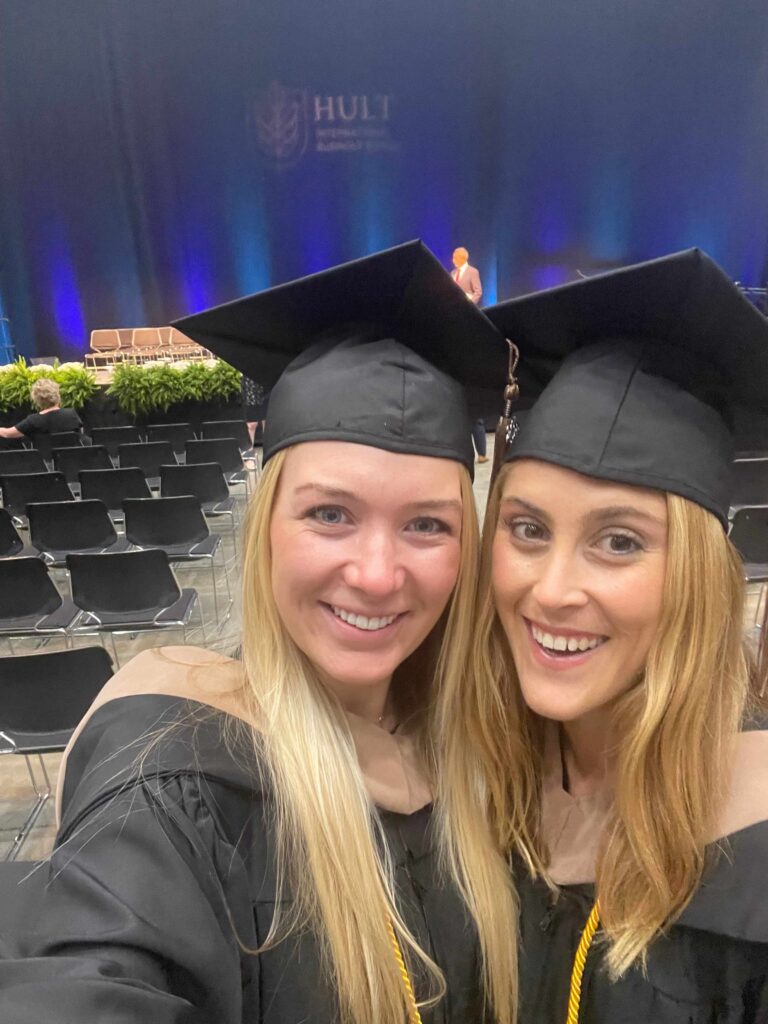

H: Was consulting your end goal?
J: Not necessarily. In my role at Cisco, we worked with our public sector partners to identify programs that could support the community. We created and worked to implement these programs across Canada—it was very similar to traditional consulting that you think of but with a philanthropic lens When I was studying for my Master’s in Business Analytics, I was actually looking to go back into the tech industry, but it was my SQL professor, Professor Erande, who took me aside one day and said, “Have you considered technology consulting? Because I think you would be really great in that world.” And she sparked my interest in going down that path, which is essentially how I ended up at EY.
H: You started Hult in the fall of 2020—right in the middle of the Covid pandemic. What was that like?
J: It was a really strange time—but a really special time. Boston was shut down. The world was shut down due to the COVID-19 pandemic. There were intense travel restrictions. Restaurants and businesses were closed. No sports. Restrictions on how many people you could socialize with …. Many schools around the world were closed, including all the ones in Boston and Cambridge like MIT and Harvard, and we were one of the only schools that had the option to return to the classroom in person. I’m so grateful for that opportunity because we were able to create a very tight-knit community.
On campus, we still had to social distance. We couldn’t meet in groups bigger than six. We were wearing masks. We were doing lateral flow tests three times a week. But you know what? It was such a unique experience. No one was traveling. No one was visiting. It was really just us and the school. Because of this, we had the opportunity to form special bonds with our professors; with Mary, who ran the MBA; and with our fellow MBA students … A lot of us weren’t able to return home for a year or more, and so we spent a lot of those vacations, milestones, and celebrations all together.
H: You stayed on for your Dual Degree: had things changed by your second year?
J: My second year was more of a “traditional” college experience. There were still Covid restrictions, but at the same time, we were able to have career and cultural fairs and were able to engage in networking events, clubs, sports, and trips with our classmates. So that was more of a traditional experience, but both were great in their own ways. Really what stood out were the professors—they were amazing. I’m still in contact with a lot of them today. In my second year at Hult, I went on to work for a lot of them. First, as a virtual classroom facilitator and then as a teaching assistant for both undergraduate and graduate courses. I first worked for them at Hult, and then also at Harvard for a professor who taught at both Hult and Harvard.
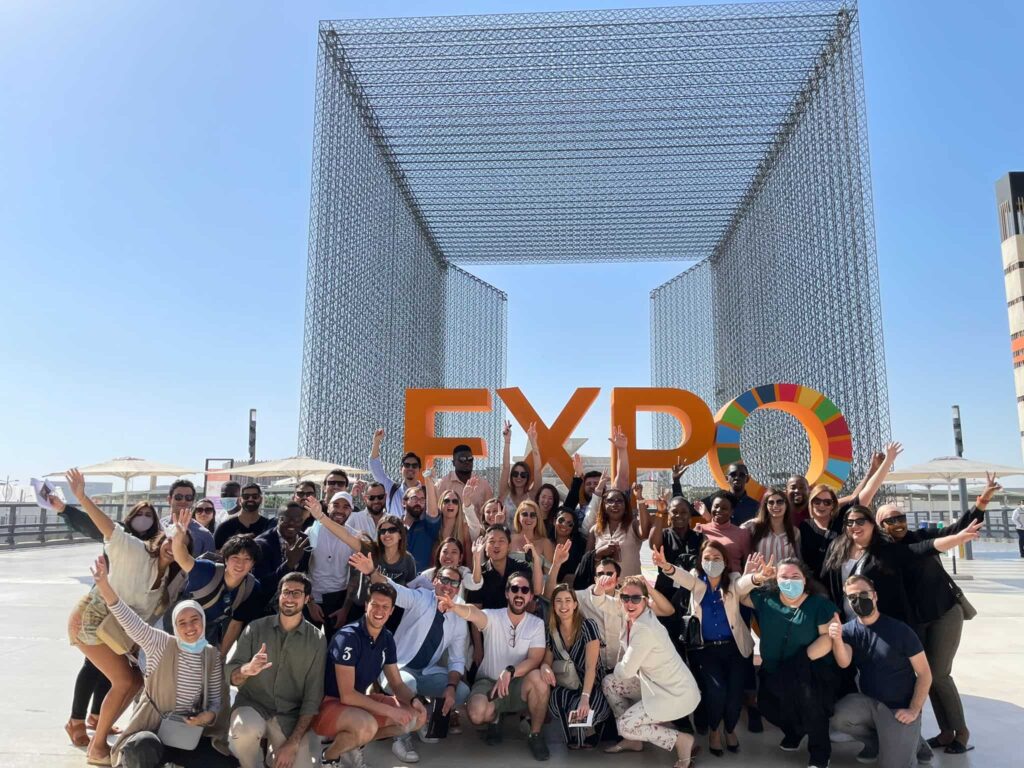

H: You were voted by your peers to win the Global Citizen award that year …
J: I’m super proud of that. I think this exemplifies how the people we were surrounded by were one of the most important factors in the experience. My classmates were from all different countries, backgrounds, and cultures. It was so important to me to help create and engage in a community within our class that showcased everyone’s skills, strengths, ways of working, and points of view—in the classroom, in group work, and then outside of school. We not only spent countless hours at school learning and studying but would then go to a different classmate’s house almost every week to cook and learn about all different types of cuisine from countries like South Korea, Nigeria, and Brazil.
H: Why is this important in business do you think?
J: At Hult, you’ll do many group projects. For every subject, we would be paired with a new group of students. Each group was made up of a different combination of students from varied backgrounds. The opportunity to work on practical, real-world projects in a collaborative setting really sets you up for success in the working world.
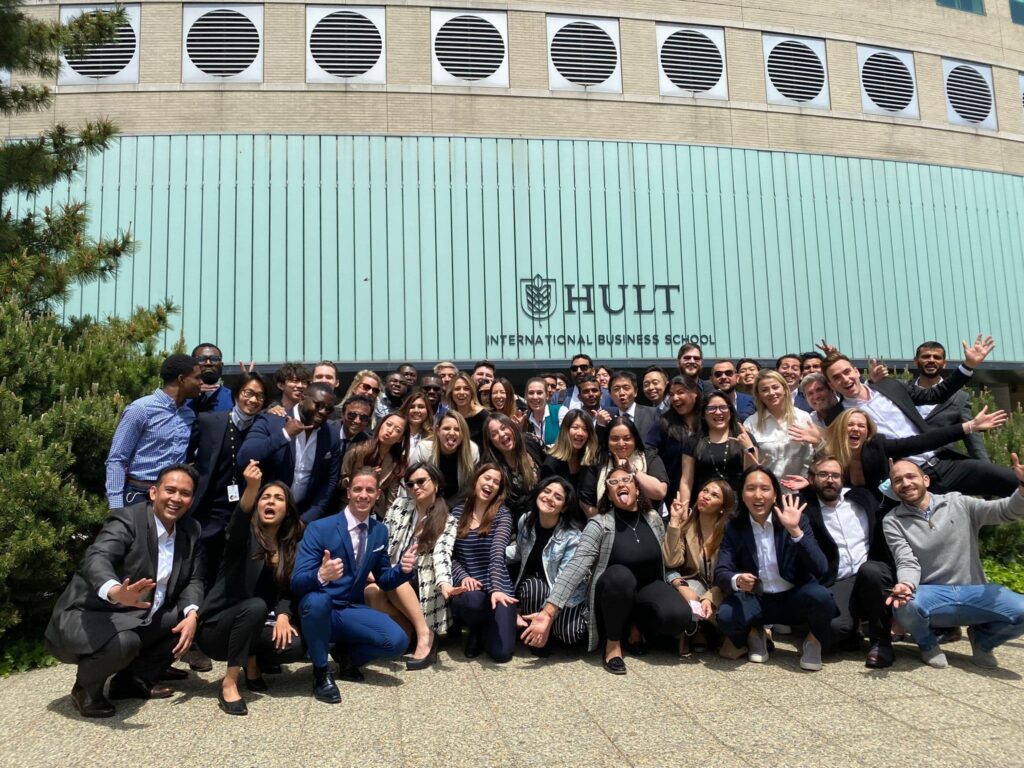

H: After graduation, you joined EY. What drew you there?
J: I’d been looking at various consulting firms and networking with past alumni. One of my MBA classmates and good friends, Magdalena, from Germany, was working at EY, so I reached out to her to have an informal coffee chat and learn more about her experience. I had two key priorities when looking for a job after school. One: it had to be a place where I felt I had varied opportunities and experiences to learn and grow professionally. And two: culture. Magdalena spoke extremely highly about EY on both of those factors. She encouraged and supported me in applying for the position and it all went from there!
H: What’s next for you?
J: I’m about to start my next chapter—I’m leaving Boston and EY behind for Bloomberg in London, starting January 2024. I am literally in the process of moving my life across the Atlantic to London. This is a longer-term opportunity that suits my personal circumstances right now!
H: London! Very exciting! But then, we’re biased …
J: I got to scope London out last summer thanks to Hult! Every year after graduation, we can attend any campus for an elective. So, I took an artificial intelligence elective in London because it was a great way for me to learn more about the city and see if I really wanted to move. Plus, the course was fantastic and aligned with some of the things that I was doing at work and that I’d doing in the future.
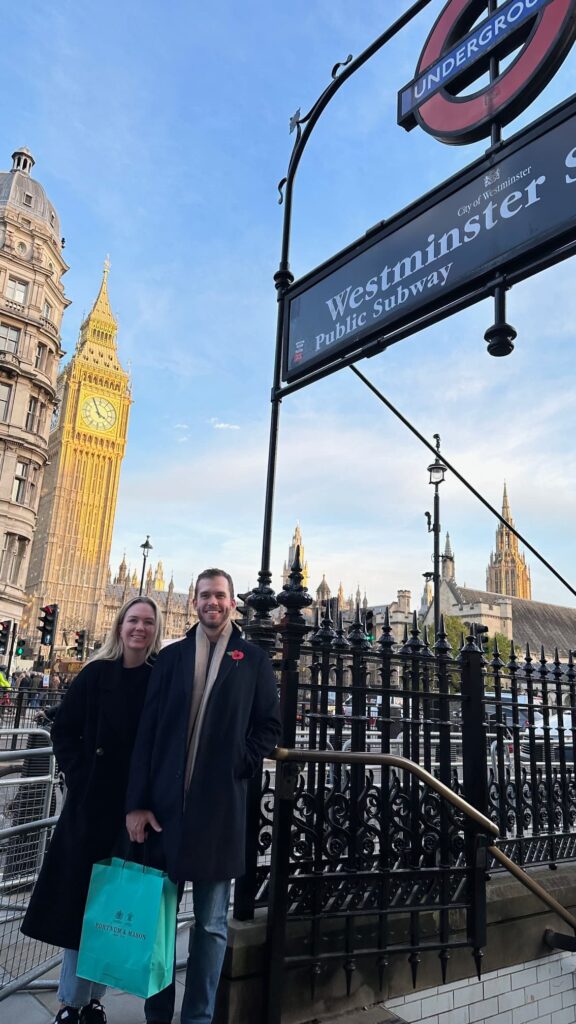

H: What’s on your agenda at Bloomberg?
J: I’ll be continuing my work specializing in Agile Delivery Services. Taking the Agile framework and my experience working with very traditional software product development and working to support the team in implementing Agile and Scrum Methodologies within many of their operations functions as they continue down their very ambitious and (already) successful large-scale transformation to Agile. I’m excited for this next chapter and seeing what life in London has to offer!
H: Congratulations on your amazing career journey so far, Julia, and all the best for the future! We look forward to seeing what you achieve next.


